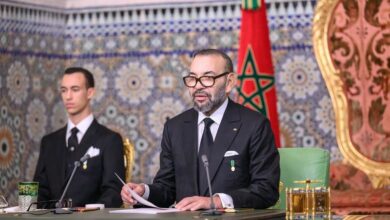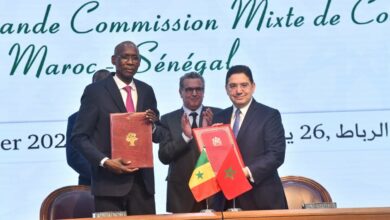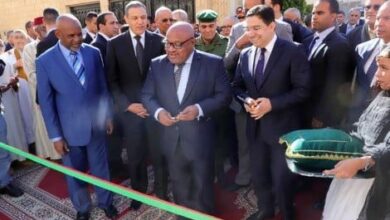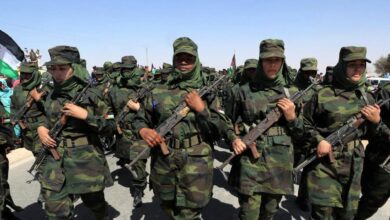Hilale : C24… Decolonization of Moroccan Sahara Has Been Definitively Sealed since 1975

Addressing the seminar, held this week in Bali, Indonesia, Hilale expressed the Kingdom’s gratitude and appreciation to the overwhelming majority of the members of the Committee of 24 for their support for the Moroccanness of the Sahara and the Autonomy Initiative.
“To those who support the UN political process and the SG’s Personal Envoy, Mr. Staffan de Mistura, I reaffirm Morocco’s resolute commitment to this process in order to achieve a realistic, pragmatic, lasting and compromise solution to this regional dispute, in accordance with Security Council resolutions, including resolution 2654,” he added.
“To those who still talk about decolonization, we tell them that the decolonization of the Moroccan Sahara is over. It was completed in 1975 with the Madrid Agreement, which was deposited with the UN Secretary-General and endorsed by the General Assembly the same year”, said Hilale, noting that the Sahara issue is a question of the Kingdom’s territorial integrity and not of decolonization.
Addressing those who advocate self-determination and exploit resolution 1514, he called them to account for their culpable silence on other UN resolutions, particularly resolutions 1541 and 2625, which preserve the territorial integrity of States. He denounced a “biased and ideological” reading of the principle of self-determination and of resolution 1514.
The ambassador, Morocco’s permanent representative to the UN, also stressed that “territorial integrity takes precedence over the right to self-determination,” asserting that “the principle of self-determination is a positive right, which only came into being in 1960, thanks to resolution 1514”, whereas the principle of territorial integrity has existed for as long as mankind has existed, since states were founded. “It is therefore a right that has existed for centuries”, insisted the ambassador.
Noting that self-determination is not an “à la carte principle”, the diplomat pointed out that “we cannot claim” to apply this principle to one so-called people and deny it to others. International law is universal and must apply to all, he insisted.
Responding to the Algerian diplomat’s insidious question about the “obstacles” to a political settlement of the Moroccan Sahara issue, Hilale noted that Morocco has always supported the political process and the UN SG’s Personal Envoy, and accepted the Security Council’s resolutions.
In his reply, the Moroccan ambassador confronted his Algerian counterpart: “Who officially rejects the Security Council resolutions? Who refuses to return to the round-table process? Who objects to the census of the Tindouf camps’ populations? Who shelters on its territory a separatist group armed against its neighboring country? Who denies the principle of good neighborliness? Who refuses the peaceful settlement of disputes through dialogue advocated by the United Nations Charter?”.
Hilale also expressed his fervent hope that this bilateral dispute could be settled within the framework of the UN political process supported by the international community, stressing that the Moroccan autonomy initiative is the only solution to this artificial conflict, which “will enable our brothers and sisters in the Tindouf camps to return to their motherland, Morocco.”
Agreeing with one speaker that the question of the Moroccan Sahara should no longer be discussed within the framework of the C24, the ambassador pointed out that the Security Council does not consider it a question of decolonization, but of peace and security, within the framework of Chapter VI of the United Nations Charter.
He recalled that Article 12 of this Charter requires the General Assembly and its subsidiary bodies, including the 4th Committee and C24, to refrain from intervening on any subject when it is under consideration by the Security Council. This is currently the case for the Moroccan Sahara.
The diplomat also recalled that the question of the Moroccan Sahara is a political dispute to which Algeria is a party, which is why Algeria is mentioned five times in the latest Security Council resolutions.
This dispute will be settled when Algeria returns to the round table, in accordance with resolution 2654, and with full respect for the Kingdom’s territorial integrity.
Reacting to the Algerian ambassador’s truncated remarks on Morocco’s compliance with its commitments to resolve the dispute, Hilale pointed out that the Kingdom had always honored its commitments to settle the dispute within the framework of dialogue between Morocco and Algeria.
In this context, he recalled that His Majesty King Mohammed VI had, on several occasions, extended his hand to His brother the Algerian President to discuss, without conditions, all bilateral issues, from the Moroccan Sahara to the opening of borders that have been closed for more than three decades, as well as sectoral meetings and bilateral cooperation.
“Morocco is always animated by good will, peace, good neighborliness and fraternity”, he stressed, expressing the hope that this would soon be possible.
The ambassador concluded by expressing the hope that a virtuous dynamic would be set in motion between the two countries, “because there will be no solution to this dispute without a commitment on the part of the neighboring country, Algeria, to find a solution within the framework of respect for Morocco’s territorial integrity and good neighborliness, and ultimately the realization of the dream of the great Arab Maghreb.”
AL dar : LA MAP





